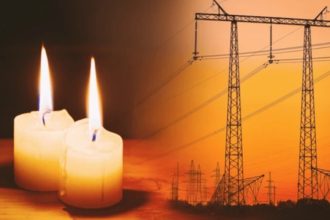The Ghana National Chamber of Commerce and Industry (GNCCI) has expressed concern over the lack of a short-term plan to address the cedi’s depreciation, which has affected local businesses.
The cedi continues to give grounds to the US dollar with the year-to-date depreciation at 17.88%. It is presently going for GH¢14.90 to a dollar on the retail forex market.
Businesses have expressed their frustration at the state of the cedi.
Some financial and currency analysts believe the depreciation is due to supply and demand fluctuations, the lack of access to international capital markets, a shortage of foreign direct investment, poor cocoa harvests, and the government/ Bank of Ghana averting the leakage of foreign remittances.
According to the Chief Executive Officer of GNCCI, Mark Badu-Aboagye, there is an urgent need for the government to implement short-term measures to halt the rapid decline of the local currency.
He warned that many businesses could collapse without immediate intervention before any long-term solutions take effect.
Mr. Badu-Aboagye’s comments follow a deputy minister for finance’s statement of a long-term national framework to address the cedi depreciation.
In an interview on May 29, Dr Stephen Amoah indicated that the flagbearer of the New Patriotic Party (NPP), Dr Mahamudu Bawumia, will draft a long-term national framework that will fight and reverse the cedi’s sharp depreciation against the US dollar if he is elected president.
“We are doing our best to stabilise the cedi, which I said is a short-term approach, but we need a long-term approach to resolve the issue through a framework, and then I proposed that to achieve that, we will design a long-term approach when Dr Mahamudu Bawumia is elected president.”
But Mr Badu-Aboagye cautioned against relying solely on long-term plans, stressing the immediate needs of businesses.
“For a business, we need to survive in the short term before we talk about the long term. Fine, the minister said that Bawumia will come out with a longer-term structure. That is fine but by the time he comes back with that long-term structure, I bet you a lot of businesses would have collapsed,” he stated.
He also highlighted challenges in Ghana’s competitiveness in the international market and questioned the viability of the country’s export strategy.
“We keep saying we want to structure our economy and export more. The question we should ask is, what are we exporting? Are we competitive in the international market?
“If we take our product to the international market, will somebody choose our product against the one coming from another country with high quality and low price?
“It is extremely difficult to produce in this country. So, people will produce and would not be able to sell on the international market, and he will not be able to get the foreign exchange into this country,” he stated.
















